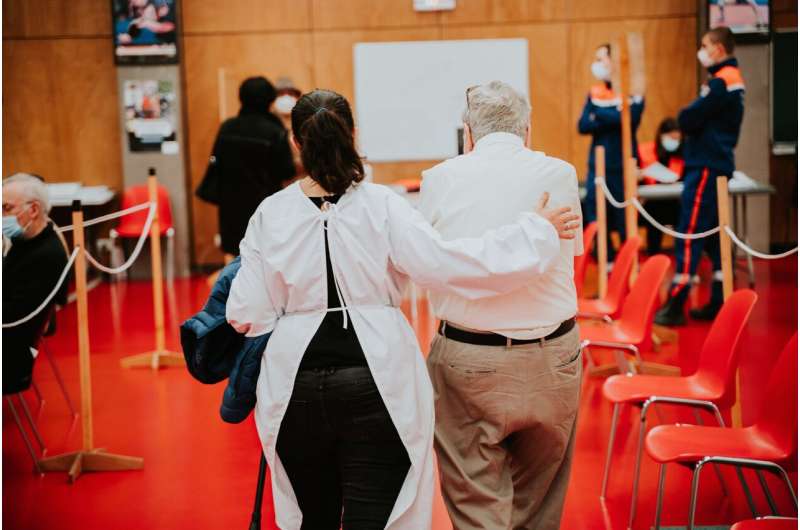Credit: Unsplash/CC0 Public Domain
Around half of people over 80 years of age require a second dose of the Pfizer-BioNTech SARS-CoV-2 mRNA-based vaccine in order to achieve maximum virus neutralization, a Nature study involving 140 participants suggests. The findings have important implications for the roll-out of the global vaccine program.
Ravindra Gupta and colleagues compared the post-vaccination immune response in 80 elderly people and 60 younger healthcare workers. Three weeks after the first dose of the Pfizer-BioNTech vaccine, a lower proportion of participants over the age of 80 achieved adequate neutralization titres compared to those in the younger group. Elderly participants were also less able to neutralize variants of concern, such as the Alpha (B.1.1.7) and Beta (B.1.351) variants, compared to younger participants following a first dose. After the second dose, however, neutralizing antibody responses were comparable in all participants.
Vaccines remain the cornerstone for containing the COVID-19 pandemic, but the trials that underpin their development involve few participants above the age of 80. The results presented here may help to explain the reports of severe infection in people vaccinated with just one dose. With vaccines in short supply, some countries have or are planning to extend the three-week gap between doses to twelve weeks, but the authors urge caution. The elderly are a high-risk population that warrant specific measures to boost vaccine responses, especially where variants of concern are circulating. In addition, if vaccine strategies lead to suboptimal immunization, this may provide conditions that are conducive to the generation of new, vaccine-resistant variants.
More information: Dami A. Collier et al, Age-related immune response heterogeneity to SARS-CoV-2 vaccine BNT162b2, Nature (2021). DOI: 10.1038/s41586-021-03739-1
Journal information: Nature
Provided by Nature Publishing Group
























